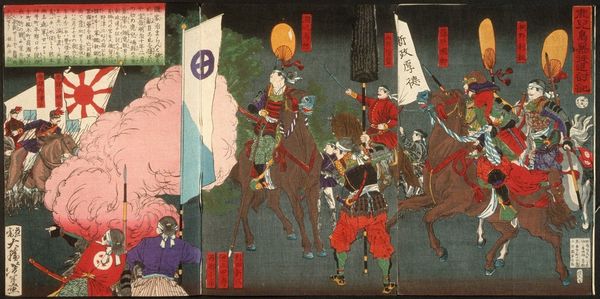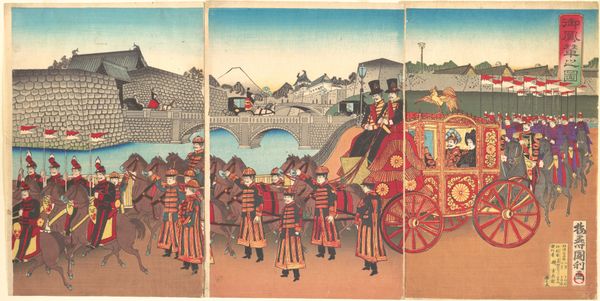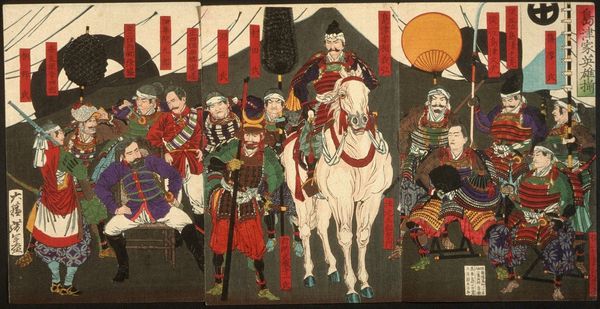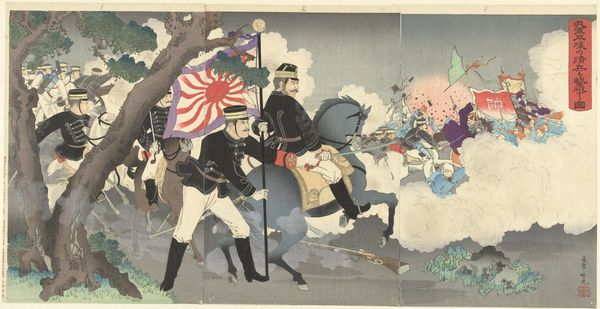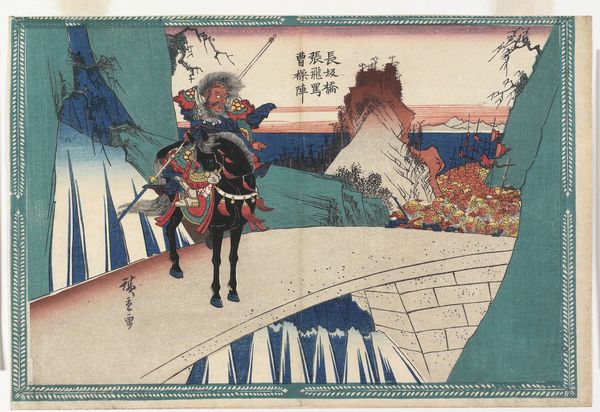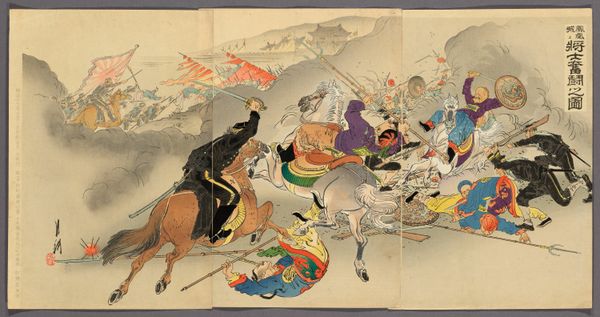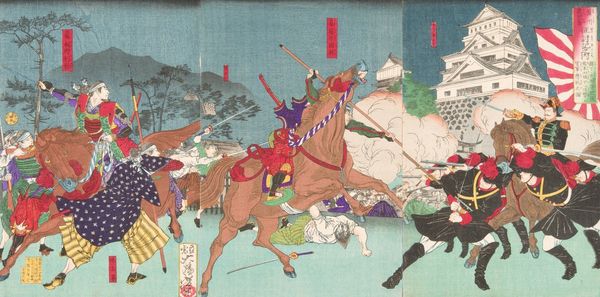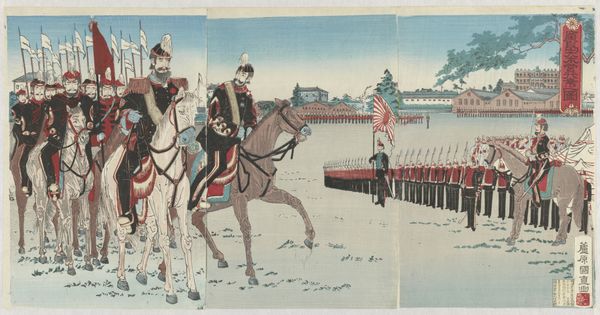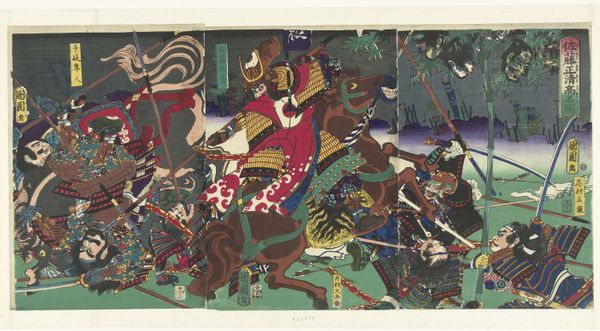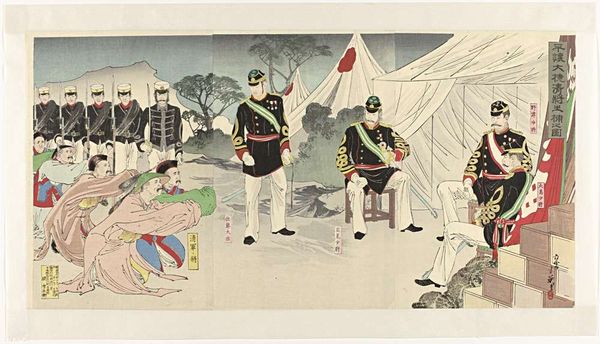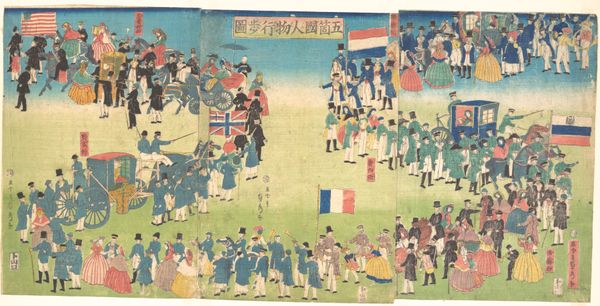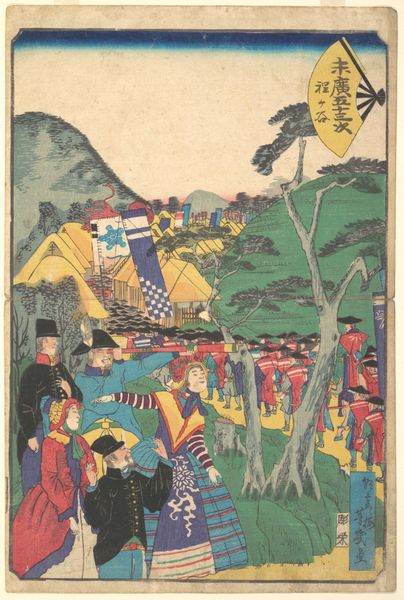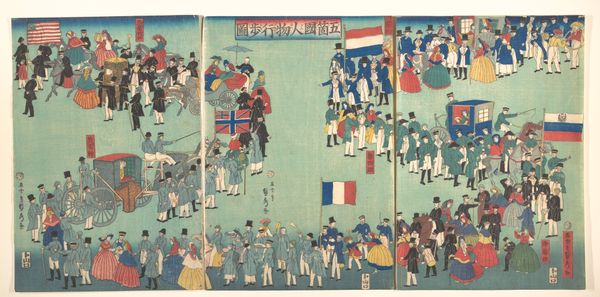
The Triumphant Return of the Japanese Army after the Great Victory at Seonghwan c. 1894
0:00
0:00
#
water colours
#
mural art
#
handmade artwork painting
#
spray can art
#
naive art
#
wall painting
#
watercolour bleed
#
watercolour illustration
#
mixed media
#
watercolor
Copyright: Rijks Museum: Open Domain
This Triptych, by Kobayashi Ikuhide, celebrates the Japanese army's victory at Seonghwan, likely printed using woodblock techniques common at the time. The printmaking process would have involved carving the image into separate woodblocks for each color, a labor-intensive task demanding great skill, and multiple impressions on paper. The flat expanses of color and line, inherent to the medium, emphasize the patterns of flags and uniforms, lending a graphic quality to the scene. The subject matter highlights an interesting tension: the relatively low cost of woodblock printing allowed for the widespread distribution of propaganda, in service of a modernizing, militarizing Japan. This was only made possible by the skilled labor of artisans, often overlooked in narratives of military triumph. By considering both the image and its mode of production, we see how the aesthetics of craft can be mobilized for political purposes, blurring the boundaries between art, industry, and ideology.
Comments
rijksmuseum over 2 years ago
⋮
After a rebellion among the Korean population in the summer of 1894, the Korean court was compelled to invoke the help of the Chinese army. When Japan became involved, the conflict rapidly escalated. The first fights broke out at the end of July. The Japanese scored a major victory at the Battle of Seonghwan. Here we see their triumphant return to the capital of Seoul.
Join the conversation
Join millions of artists and users on Artera today and experience the ultimate creative platform.
